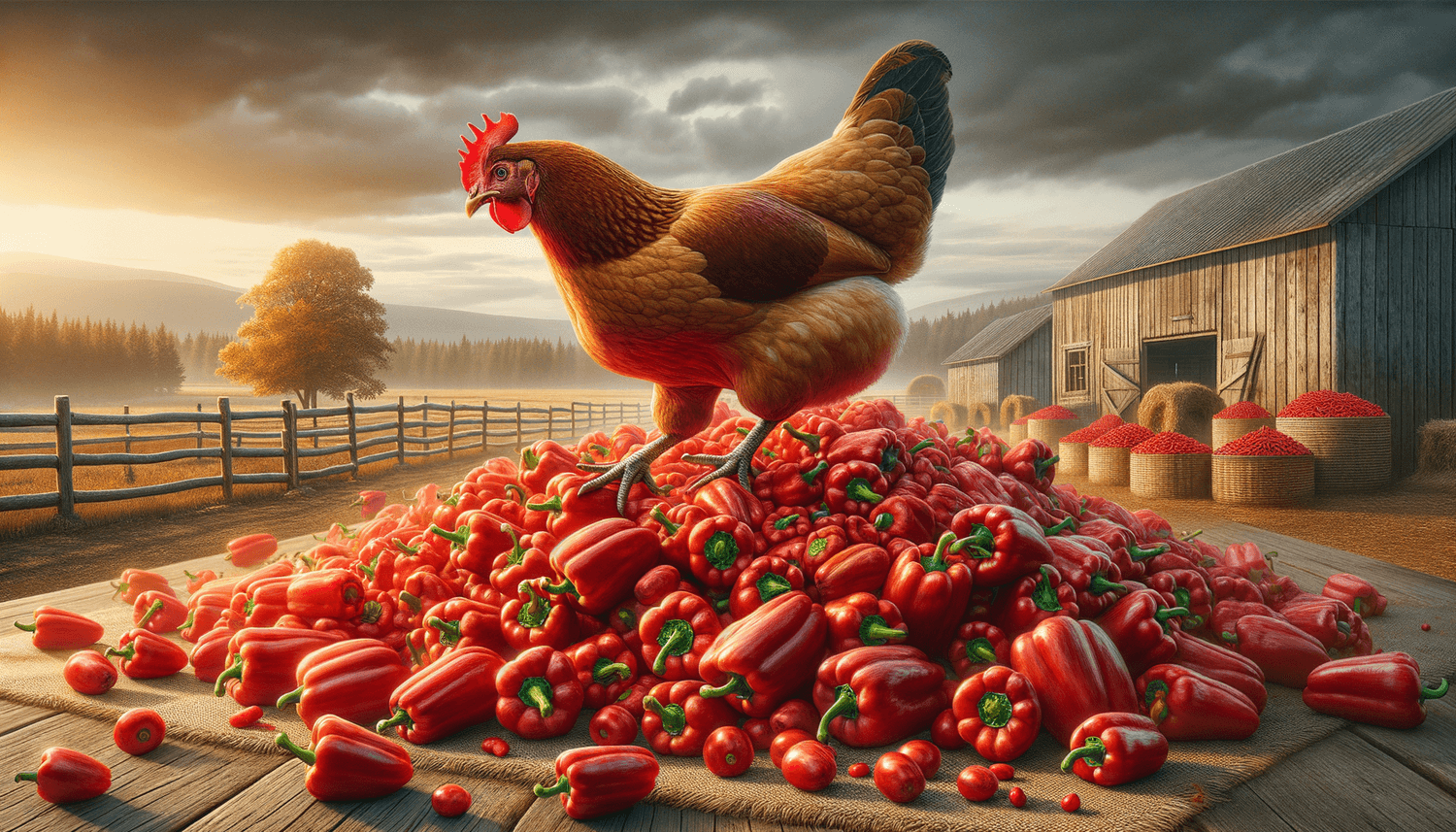Have you ever been lounging in your backyard, admiring your beautiful flock of feathered friends, and wondered whether they can join in your scrumptious red pepper snack? Well, wonder no more! In this fun and informative blog post, we’re diving into the world of chickens and red peppers – exploring if they can indeed enjoy these colorful, crunchy treats, the importance of a balanced chicken diet, and the potential benefits and risks of sharing this snack with your clucking companions. We’ll also take a peek at the nutritional value and provide some tips on how to prepare these flavor-packed veggies for your feathered friends. Ready to spice up your chicken coop knowledge? Stay tuned!
Can chickens eat red peppers?
Yes, chickens can safely eat red peppers! Not only do they enjoy the vibrant flavors and textures, but red peppers also provide nutritional benefits like vitamins A and C. Just be sure to serve them in moderation as part of a balanced diet to keep your backyard flock happy and healthy.
A balanced diet for your chickens
Just like humans, chickens need a balanced diet to maintain good health and provide them with the required energy for their daily activities. A chicken’s diet should primarily consist of a high-quality chicken feed, which ensures that they receive the necessary nutrients they need. In fact, this chicken feed should make up around 80-90% of their daily intake.
The remaining 10-20% of a chicken’s diet can be composed of treats such as fruits and vegetables. These treats not only provide additional nutrients, but they also keep chickens engaged, entertained, and stimulated. Providing a variety of these tasty tidbits helps to maintain a happy, active flock. Remember, though, to maintain the dietary balance so as not to compromise the health of your feathered friends!
Nutritional value of red peppers for chickens.
Feeding red peppers to chickens provides them with valuable nutritional content that can complement their regular diet. Red peppers are an excellent source of vitamins A and C, both of which contribute to a chicken’s overall well-being. Vitamin A plays a vital role in maintaining healthy skin, feathers, and vision, while vitamin C supports their immune system, ensuring that your flock stays healthy and resilient against potential illnesses.
Red peppers also contain essential minerals like potassium and magnesium, which promote strong bone development and help regulate various bodily functions. Additionally, red peppers have a high water content, making them a great treat to offer during hot summer months, as they can provide chickens with extra hydration.
Besides their nutritional value, red peppers offer an engaging and enriching experience for your chickens. The vibrant color, crunchy texture, and distinct flavor provide a refreshing break from their usual chicken feed, allowing them to explore new tastes and textures. Keep in mind, however, that red peppers should be treated as a supplementary treat and not as a staple in their diet.
Nutrition table of red peppers for chickens.
| Information | Description |
|---|---|
| Nutritional Value | High in vitamins A and C, potassium, magnesium, and hydration |
| Suggested Serving Size | A small portion, fed in moderation as part of the 10-20% of daily treats |
| Safe Feeding Practices | Feed red peppers in moderation alongside a balanced diet consisting primarily of chicken feed |
| Preparation | Wash and remove seeds; chop or slice, then serve raw or cooked |
| Potential Risks | Overconsumption could result in nutritional imbalance, but feeding in moderation lowers the risk |
| Hydration | Red peppers have a high water content and can provide extra hydration during hot months |
| Digestion | Easily digestible when fed in small quantities as a treat |
| Seasonal Availability | Most readily available in summer and early fall, but can be found in stores year-round |
| Other Benefits | Provides enrichment and stimulation for chickens with its distinct flavor and crunchy texture |
Preparing red peppers for your chickens
Now that we’ve covered the nutritional benefits and importance of feeding red peppers in moderation to your chickens, let’s discuss how to prepare this delicious treat. First, thoroughly wash the red pepper to remove any dirt, pesticides, or other contaminants. Once clean, remove the seeds, which can be a choking hazard for your chickens. Then, chop or slice the pepper into bite-sized pieces that are easy for your flock to eat.
While raw red peppers are perfectly safe for chickens, you can also cook them if you like. Lightly steaming or stir-frying the peppers can soften the texture and offer your chickens a new sensory experience. However, refrain from adding any seasoning, oils, or fats, as these are not necessary and could be harmful to your birds. Instead, serve the cooked peppers plain and let your chickens enjoy the natural taste and texture.
Exploring other tasty treats for your flock
Chickens love variety in their diet, and introducing different fruits, vegetables, and other treats alongside red peppers can keep things interesting for your backyard companions. Some other healthy options include leafy greens, melons, berries, and even cooked grains such as rice or pasta. Remember always to research any new additions to your chickens’ diet and follow safe feeding practices to ensure good health.
In conclusion, red peppers are a nutritious and tasty treat that chickens can safely enjoy in moderation. By paying close attention to balancing their diet and preparing red peppers properly, you can provide a delightful addition to your chickens’ meals without compromising their well-being. Buon appetito, feathered friends!

















